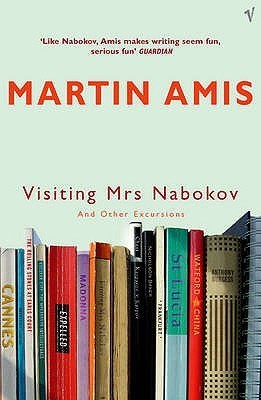What do you think?
Rate this book


288 pages, Paperback
First published January 1, 1993
‘An average day? I don’t have average days, because there’s always the possibility of having to move. I read a lot. I talk on the telephone a lot—two or three hours a day. I play computer games. Chess. Supermario. I am a master of Supermarios I and II.’
As our conversation went on, and remained pretty cautious and general, I felt a mild unease growing in Mrs Nabokov—as if she would inevitably have to repulse some grossly personal query ('Mrs Nabokov, did you ever meet the real Lolita?'). Eventually, she said, 'These questions you will ask. Where are these questions?'
'Well, there were one or two things,' I said. 'Your husband dedicated all his books to you, every one. That's very unusual, isn't it?'
'It is? . . . What should I answer? We had a very unusual relationship. But that you knew before you asked. Anything else?'
'Was he—was he great fun?' I asked helplessly. 'Were there lots of jokes? Did you laugh a lot?'
'Oh, yes. His humour was delightful. He was delightful,' said Mrs Nabokov. 'But you knew that too.'
Just before the 1978 Championship I interviewed Korchnoi in London, at the Savoy. At one point, twisting powerfully in his chair, he became silent, and then grew dreamy. With some wistfulness he confessed that he despaired of ever bringing home, to people in the West, the crawling sliminess, the full squidgy horror, of Anatoly Karpov. 'You know, in Russia we have a fish,' he said, 'called a karp. A disgusting, slimy fish. You wouldn't eat it. That's what Karpov is.' I said, 'We've got that fish too. Called a carp.' Korchnoi looked startled. 'You have?... Good! Good!'